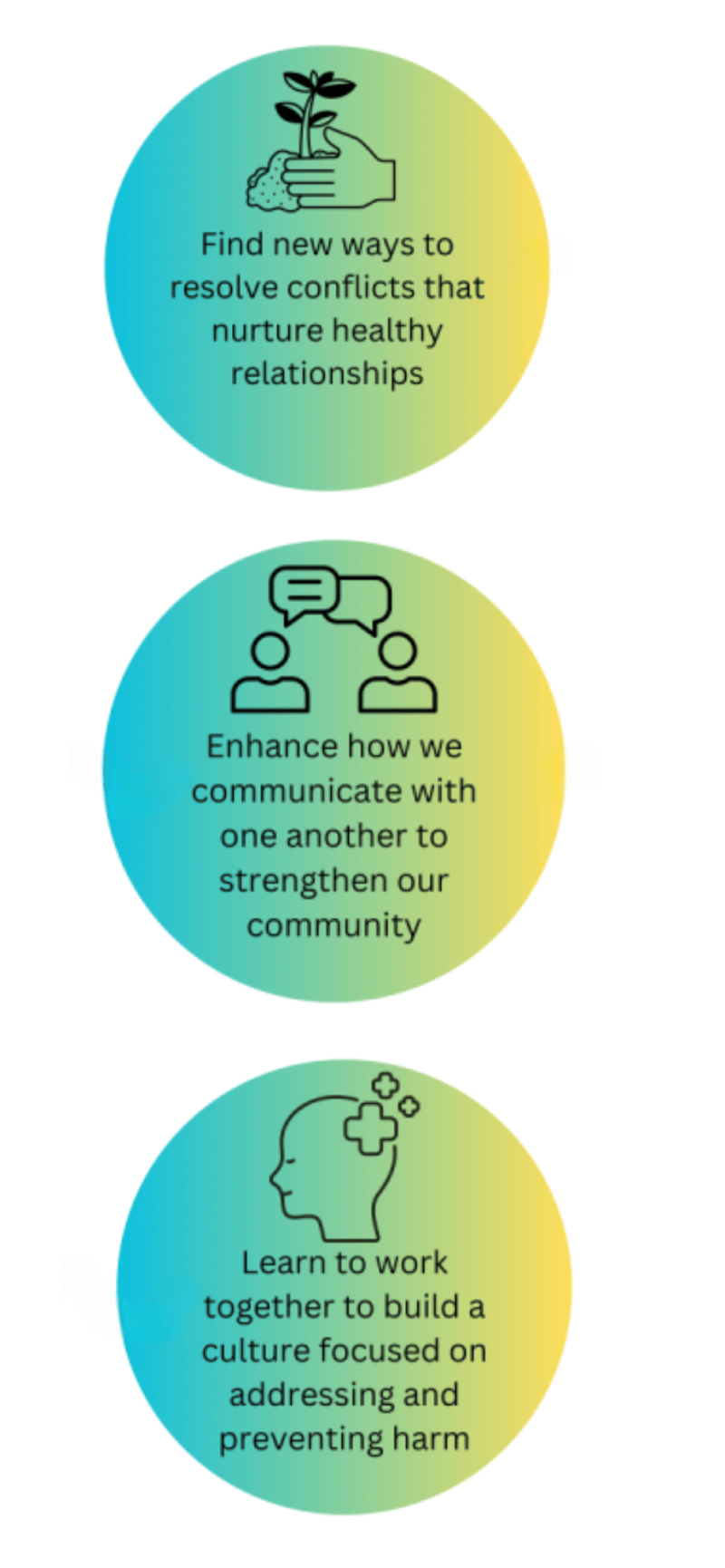
Our Resources



Restorative Practices Dialogue Model
Download our Restorative Practice Dialogue Model to discover strategies for navigating difficult conversations while fostering relationships based on mutual respect and empathy.

How restorative are you?
Are you curious about how restorative your approach is? Take our quick quiz to find out and learn more about your strengths and areas for growth.
Take the Quiz Now!
Questions? Please contact restorativepractices@tulane.edu for more information.

Ten Principles for Living Restoratively
We present ten guiding principles for adopting a restorative way of life in honor of Howard Zehr, frequently referred to as "the grandfather of restorative justice" and the founder of the Zehr Institute for Restorative Justice:
Recognize the profound interconnectedness of all beings, including people, institutions, and the environment, and honor the inherent value of these relationships.
Cultivate awareness of the potential positive and negative impact your actions may have on others and the environment.
Even if it means facing uncomfortable truths and trying to improve things, acknowledge and take responsibility for any harm your actions may have caused.
Treat everyone with respect, regardless of your expectations or judgments, including those who may have harmed or offended you or others.
Strive to involve those affected by a decision in the decision-making process, recognizing the importance of their perspectives and experiences.
View conflicts and harms as opportunities for growth, learning, and transformative change.
Engage in deep and compassionate listening, seeking to understand others even when disagreeing, and valuing empathy and connection over being right.
Courageously engage in dialogue with others, even in challenging circumstances, remaining open to learning from their perspectives and the shared experience.
Be mindful about imposing your own "truths" and views on others, respecting diverse perspectives, and promoting dialogue and understanding.

